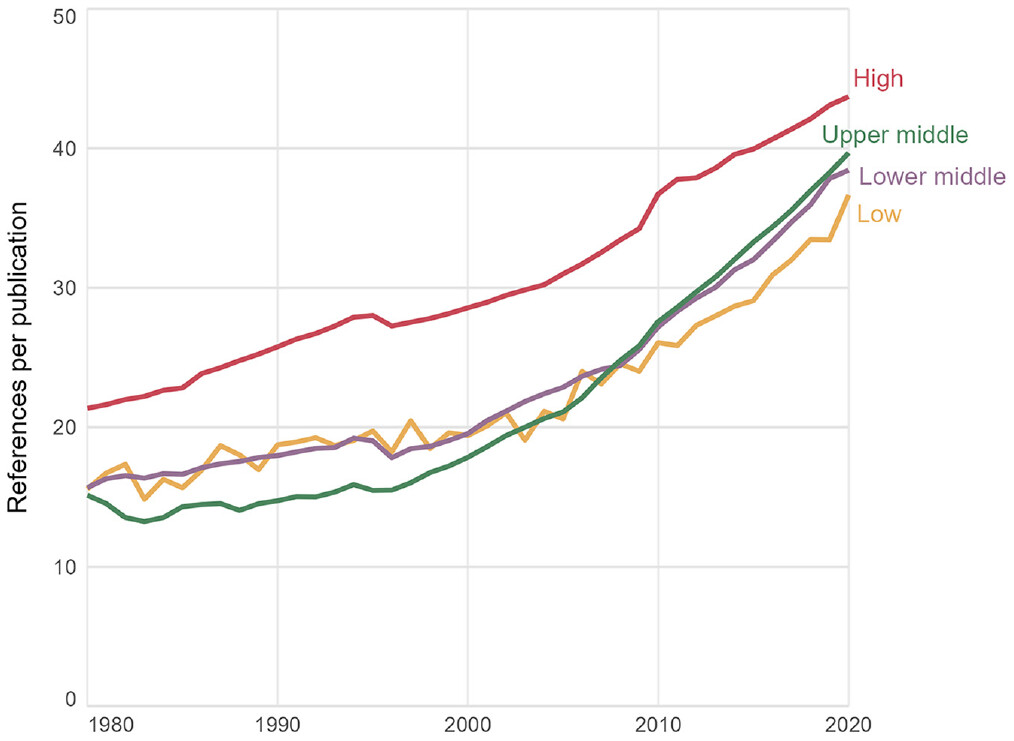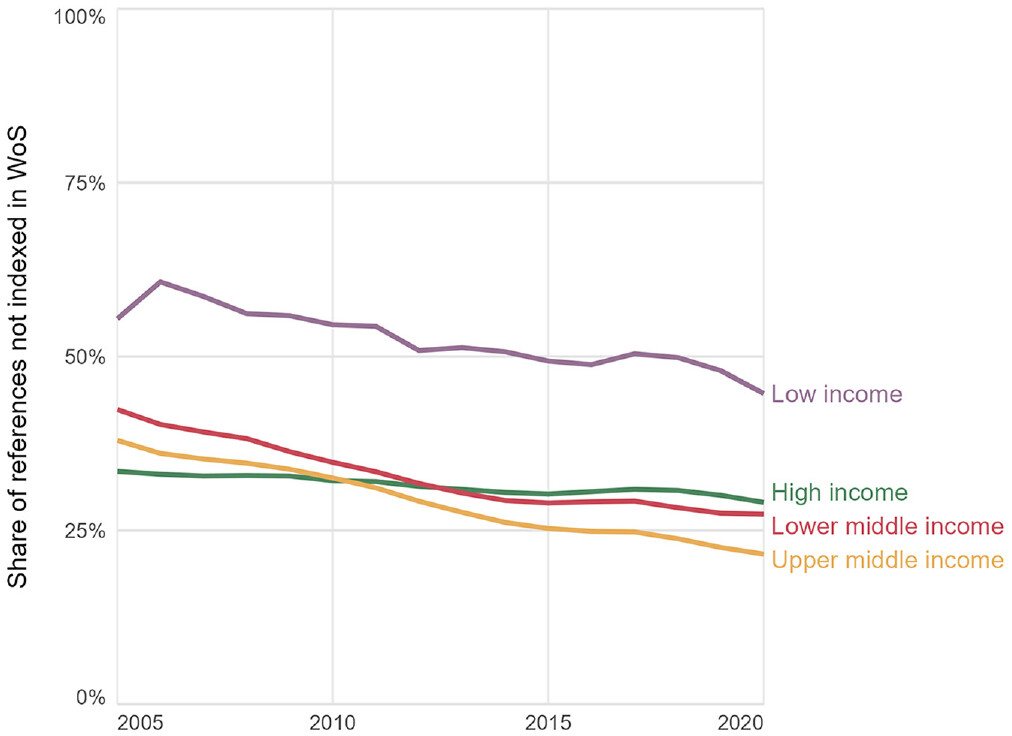
A Global Analysis: Benefits of Open Access to Researchers From Lower-Income Countries
A Global Analysis: Benefits of Open Access to Researchers From Lower-Income Countries https://opusproject.eu/wp-content/uploads/2024/04/twitter-paste.png 1000 500 Open and Universal Science (OPUS) Project Open and Universal Science (OPUS) Project https://opusproject.eu/wp-content/uploads/2024/04/twitter-paste.pngIntroduction: The open access (OA) movement has revolutionized the dissemination of scientific literature, aiming to make it freely available to everyone. Particularly crucial is its impact on researchers in lower-income countries who often struggle with access due to high subscription costs. This article delves into the evolving landscape of OA and its specific benefits for researchers in economically disadvantaged regions by examining reference patterns in scientific publications worldwide.

Background: Global Differences in Research and Development (R&D) Capacity Lower levels of R&D investments in low-income countries have historically restricted access to scientific literature. Initiatives aimed at providing subsidized access have faced challenges of sustainability and coordination. However, OA has emerged as a primary driver of increased accessibility to scientific knowledge, potentially bridging the gap in research capacity between economically diverse regions.
Methods: This study employs a comprehensive approach to analyze OA trends and reference patterns across different income levels and scientific fields. It explores whether researchers from lower-income countries reference fewer publications and rely more on OA literature compared to their counterparts in higher-income countries.
Results: The analysis reveals a significant increase in the number of references to scientific publications over the past four decades, with lower-income countries experiencing a relatively stronger growth rate. Researchers from these countries are increasingly citing more recent literature and showing a higher reliance on OA sources. This suggests that OA has played a pivotal role in leveling the playing field, enabling researchers from economically disadvantaged regions to access and contribute to the global scientific discourse.
Discussion: The findings indicate a shift in citation behavior, with researchers from lower-income countries aligning more closely with their counterparts in wealthier nations. This convergence is attributed to the broader availability of OA literature and the changing dynamics of scientific communication. OA has not only expanded access but also facilitated the integration of new research into the existing literature, fostering collaboration and innovation on a global scale.

Conclusion: OA has transformed the publishing landscape, offering newfound opportunities for researchers worldwide. By dismantling barriers to access, OA has empowered researchers from lower-income countries to participate more actively in scientific discourse. This study underscores the transformative potential of OA in reducing disparities in research capacity and fostering a more inclusive and collaborative scientific community. As we continue to embrace the principles of OA, it is essential to ensure sustained support and investment to maximize its benefits for all stakeholders in the scientific ecosystem.
Karlstrøm, H., Aksnes, D. W., & Piro, F. N. (2024). Benefits of open access to researchers from lower-income countries: A global analysis of reference patterns in 1980–2020. Journal of Information Science, 0(0). https://doi.org/10.1177/01655515241245952
Photo via Open Access Button
- Posted In:
- Open Science News




